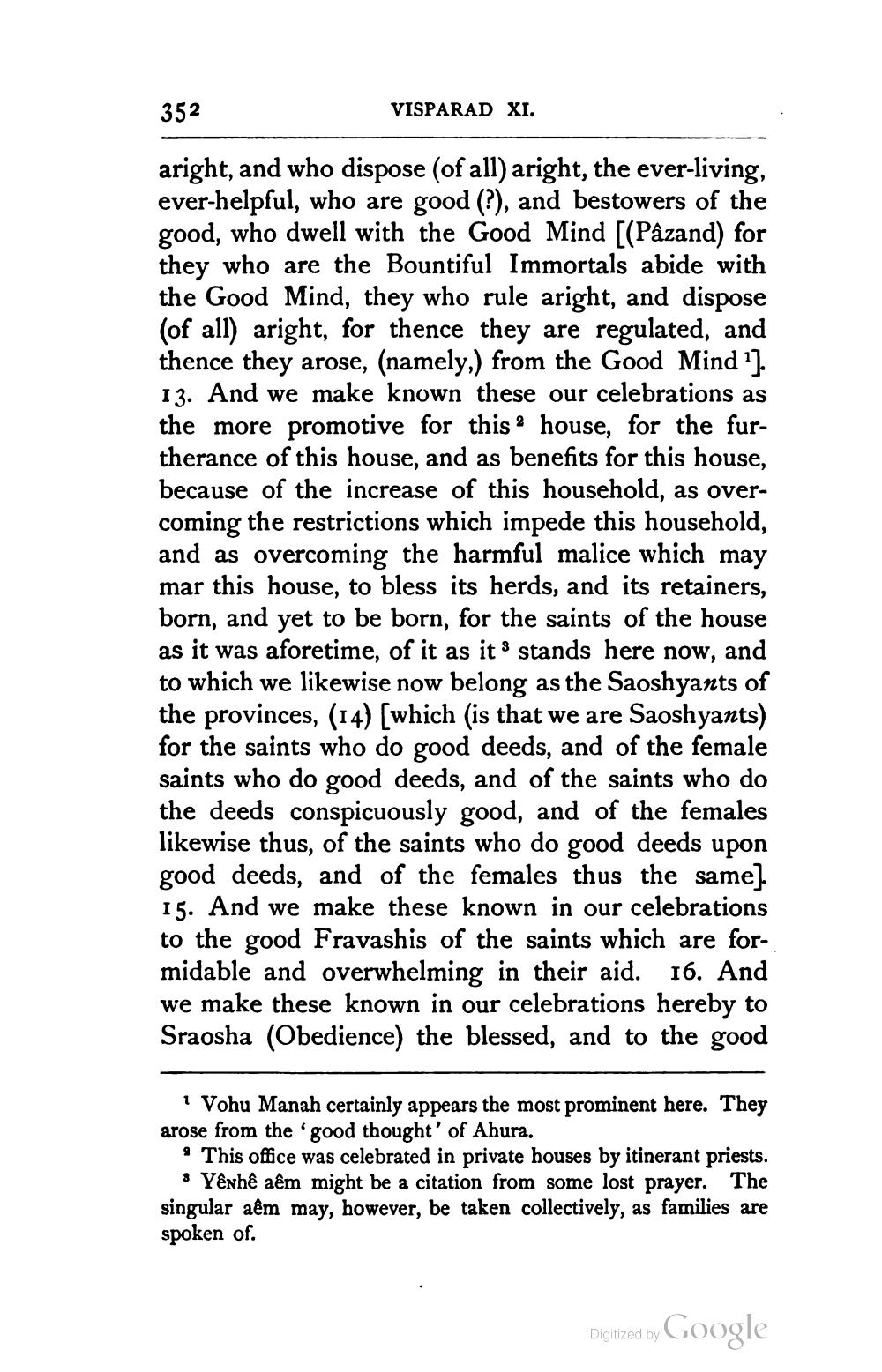________________
352
VISPARAD XI.
aright, and who dispose (of all) aright, the ever-living, ever-helpful, who are good (?), and bestowers of the good, who dwell with the Good Mind ((Pazand) for they who are the Bountiful Immortals abide with the Good Mind, they who rule aright, and dispose (of all) aright, for thence they are regulated, and thence they arose, (namely,) from the Good Mind '] 13. And we make known these our celebrations as the more promotive for this a house, for the furtherance of this house, and as benefits for this house, because of the increase of this household, as overcoming the restrictions which impede this household, and as overcoming the harmful malice which may mar this house, to bless its herds, and its retainers, born, and yet to be born, for the saints of the house as it was aforetime, of it as it stands here now, and to which we likewise now belong as the Saoshyants of the provinces, (14) (which (is that we are Saoshyants) for the saints who do good deeds, and of the female saints who do good deeds, and of the saints who do the deeds conspicuously good, and of the females likewise thus, of the saints who do good deeds upon good deeds, and of the females thus the samel 15. And we make these known in our celebrations to the good Fravashis of the saints which are formidable and overwhelming in their aid. 16. And we make these known in our celebrations hereby to Sraosha (Obedience) the blessed, and to the good
1 Vohu Manah certainly appears the most prominent here. They arose from the good thought' of Ahura. . This office was celebrated in private houses by itinerant priests.
Yênhê aêm might be a citation from some lost prayer. The singular aêm may, however, be taken collectively, as families are spoken of.
Digitized by
Digitized by Google




